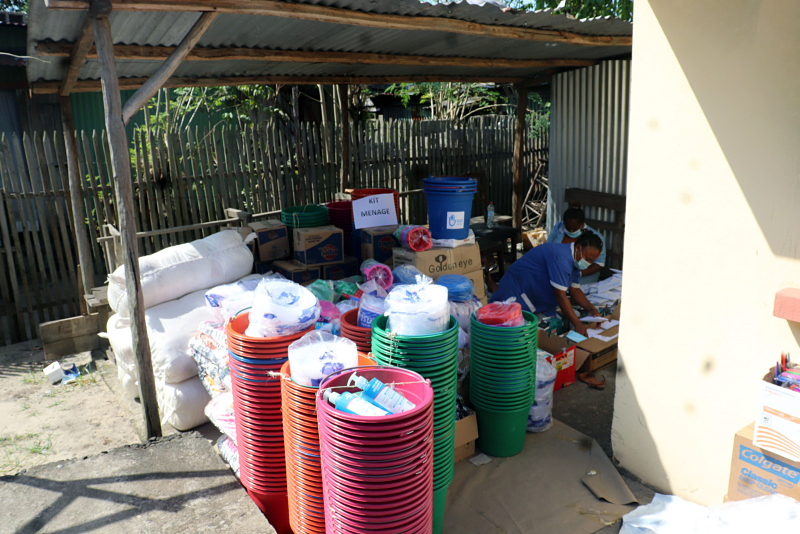Assessments continue
After cyclone Batsirai traversed Madagascar, the figures reflecting its significance continue to grow while authorities and their partners make their way around the affected regions.
Since the morning of Sunday, February 6th, an Humanity & Inclusion (HI) team of 18 people has been conducting needs assessments across the Atsinanana region.
“We’re just starting to see the initial impact of the cyclone,” says Vincent Dalonneau, HI director in Madagascar.
“There are so many houses destroyed and flooded. The health and education structures were unfortunately seriously impacted. Over 1,200 classrooms were destroyed, and 60 health facilities damaged. Many are without homes, children have no schools and the main roads remain blocked, making access particularly difficult. The most isolated zones have yet to be reached, so these numbers are expected to increase as assessments continue."
Officials are currently reporting 80 lives lost as a result of the cyclone, nearly 7500 homes destroyed, and over 112,000 people affected. More than 60,000 people were displaced into shelters for protection from the storm, and are increasingly returning to find their homes toppled, flooded, or broken.
HI to distribute emergency supplies
“People are slowly leaving the shelters now, but they have lost everything. This is a population extremely vulnerable to poverty, so the loss of any belongings can have a real long-term impact. They can’t cook warm meals for their families or wash themselves after walking through filthy floodwaters,” says Vincent.

HI will be distributing hundreds of emergency kits across the most affected regions, including kitchen supplies with cookware, and household kits with blankets to keep people warm.
Our teams will also distribute hygiene supplies such as soaps, toothpaste, disinfectants and water purifiers to the most vulnerable households, to promote sanitation and prevent the spread of waterborne diseases, resulting from flooding. Covid-19 prevention kits will also be provided, to protect people forced to live in crowded shelters from the threat of coronavirus in the ongoing global pandemic.
Supporting the most vulnerable in the aftermath
HI will maintain an emergency presence in Mahanoro, and open a new base with local partners in Fianarantsoa, where assessments have identified significant need. Kits of emergency materials will be distributed to families across these areas in the coming days.
“It will take a long time to recover from a cyclone like this. HI is committed to accompanying the most vulnerable people, and particularly people with disabilities- who unfortunately are often left out of aid responses. In an already delicate situation, many are at risk of meeting even greater difficulty,” says Vincent.





